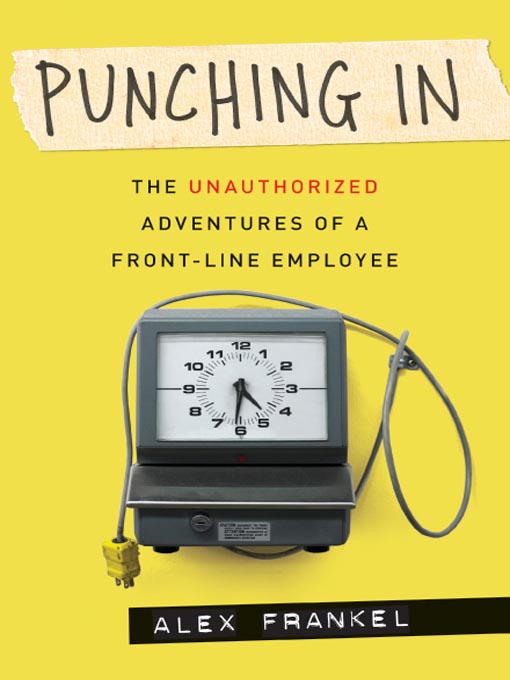 TB Patients Chafe Under Lockdown in South Africa - NYT
TB Patients Chafe Under Lockdown in South Africa - NYTPORT ELIZABETH, South Africa — The Jose Pearson TB Hospital here is like a prison for the sick. It is encircled by three fences topped with coils of razor wire to keep patients infected with lethal strains of tuberculosis from escaping.
But at Christmastime and again around Easter, dozens of them cut holes in the fences, slipped through electrified wires or pushed through the gates in a desperate bid to spend the holidays with their families. Patients have been tracked down and forced to return; the hospital has quadrupled the number of guards. Many patients fear they will get out of here only in a coffin.
“We’re being held here like prisoners, but we didn’t commit a crime,” Siyasanga Lukas, 20, who has been here since 2006, said before escaping last week. “I’ve seen people die and die and die. The only discharge you get from this place is to the mortuary.”
Struggling to contain a dangerous epidemic of extensively drug-resistant tuberculosis, known as XDR-TB, the South African government’s policy is to hospitalize those unlucky enough to have the disease until they are no longer infectious. Hospitals in two of the three provinces with the most cases — here in the Eastern Cape, as well as in the Western Cape — have sought court orders to compel the return of runaways.
The public health threat is grave. The disease spreads through the air when patients cough and sneeze. It is resistant to the most effective drugs. And in South Africa, where these resistant strains of tuberculosis have reached every province and prey on those whose immune systems are weakened by AIDS, it will kill many, if not most, of those who contract it.
As extensively drug-resistant TB rapidly emerges as a global threat to public health — one found in 45 countries — South Africa is grappling with a sticky ethical problem: how to balance the liberty of individual patients against the need to protect society.
It is a quandary that has recurred over the past century, not least in New York City, where uncooperative TB patients were confined to North Brother Island in the East River in the early 1900s and to Rikers Island in the 1950s.
In the early 1990s, when New York faced its own outbreak of drug-resistant TB, the city treated people as outpatients and locked them up in hospitals only as a last resort.
Most other countries are now treating drug-resistant TB on a voluntary basis, public health experts say. But health officials here contend that the best way to protect society is to isolate patients in TB hospitals. Infected people cannot be relied on to avoid public places, they say. And treating people in their homes has serious risks: Patients from rural areas often live in windowless shacks where families sleep jammed in a single room — ideal conditions for spreading the disease.
“XDR is like biological warfare,” said Dr. Bongani Lujabe, the chief medical officer at Jose Pearson hospital. “If you let it loose, you decimate a population, especially in poor communities with a high prevalence of H.I.V./AIDS.”
But other public health experts say overcrowded, poorly ventilated hospitals have themselves been a driving force in spreading the disease in South Africa. The public would be safer if patients were treated at home, they say, with regular monitoring by health workers and contagion-control measures for the family. Locking up the sick until death will also discourage those with undiagnosed cases from coming forward, most likely driving the epidemic underground.
“It’s much better to know where the patients are and treat them where they’re happy,” said Dr. Tony Moll, chief medical officer at the Church of Scotland Hospital in Tugela Ferry. It is running a pilot project to care for patients at home.
Some 563 people were confirmed with extensively drug-resistant TB last year in South Africa and started on treatment, compared with only 20 cases in the United States from 2000 through 2006. A third of those patients in South Africa died in 2007; more than 300 remained in hospitals.
Further complicating matters, South Africa’s provinces have taken different approaches to deciding how long to hospitalize people with XDR-TB. In KwaZulu-Natal, the other province with the most cases, the main hospital is discharging patients after six months of treatment, even if they remain infectious, to make room for new patients who have a better chance of being cured. The province is rapidly adding beds, part of a national expansion of hospital capacity for XDR-TB.
“We know we’re putting out patients who are a risk to the public, but we don’t have an alternative,” said Dr. Iqbal Master, chief medical officer of the King George V Hospital in Durban.
Two days of interviews with patients cloistered here at the Jose Pearson hospital offered a rare glimpse of what all sides agree are the wrenching human costs of the patients’ confinement, as well as their rebellious feelings about being cut off from their loved ones.
Zelda Hansen, 37, the wife of a welder and mother of sons ages 4, 12 and 14, has lived at the hospital for more than a year. She was among the 31 extensively drug-resistant patients who escaped from the 350-bed hospital before Christmas, along with 57 patients with less severe strains of drug resistance. Her eldest son had started to seem like a stranger to her, she said, while her youngest, her “flower pot,” was growing up without her guidance.
Once home, she said: “I just sat and watched them. And I was very happy.”
Soon the media trumpeted news of the infectious runaways. A provincial health department spokesman vowed they would be “hunted down.” On Dec. 23, a Sunday morning, Mrs. Hansen said, police officers wearing infection-control masks came to her door. A crowd of neighbors gathered for the spectacle.
Mrs. Hansen refused to go. She begged for a few more days — just through Christmas.
Her middle son, Trevino, 12, fearing she had done something wrong, offered his barefoot mother his sneakers, called tekkies here.
“ ‘Here, Mommy, take my tekkies, go with the police,’ ” she said he had pleaded with her. “ ‘Please, Mommy, go.’ ”
Back at the hospital, on the outskirts of Port Elizabeth, Mrs. Hansen descended into despair. “I felt like going to the trees and just hanging myself, I was so humiliated,” she said.
When news of South Africa’s outbreak of extensively drug-resistant TB was announced in Toronto in 2006 at an international AIDS meeting, it sent shudders through the ranks of infectious-disease specialists. These virulent strains had rapidly killed 52 of 53 patients.
Drug resistance emerges in large part because health care systems too often have failed to ensure that patients successfully complete treatments with first- and second-line drugs, according to international health officials.
The medicines for ordinary TB here cost about $36 and take six to eight months to cure the patient. The drugs for XDR-TB cost about $7,000, and treatment lasts two years. At the start, patients endure four to six months of painful daily injections in the buttocks or thigh, a morning ritual at Jose Pearson that leaves faces scrunched up in agony. A 10-year-old boy whose mother recently died here of the disease rubbed cream into his backside to relieve the ache. He now lives on the XDR-TB ward as its solitary child, with no family around.
“I do think about my mother,” he said. “But I don’t cry because I’ll never get her back again.”
Dr. Lindiwe Mvusi, who manages the government’s tuberculosis program, said the hospitals shouldn’t be seen as prisons, and that requests in special circumstances to go home should be considered individually.
The Jose Pearson hospital had suspended all weekend passes to patients for months, and only recently reinstated them for the handful of XDR-TB patients showing signs of becoming noninfectious.
The provinces began diagnosing and treating XDR-TB on a large scale more than a year ago, but the question of where to care for South Africans who remain infected after two years or more of treatment is unsettled.
“We expect they will die at some stage, but what do we do with them in the meantime?” asked Dr. Mvusi. “Do we send them home or keep them in a sanitarium for life?”
At Jose Pearson, patients who have different degrees of drug resistance — with XDR-TB being more deadly than multidrug-resistant TB — live in different quarters, but they mix on the grounds. Infectious disease experts say that some of the multidrug-resistant patients are likely to catch the more severe XDR strains of tuberculosis directly from their fellow patients.
Peter Jantjes, the chief professional nurse in Jose Pearson’s XDR-TB unit, said that multidrug-resistant patients were turning into XDR-TB patients at an “intense rate.”
Vuyokazi Gqawe, 30, a saloonkeeper, was admitted to the hospital more than two years ago with the lesser form of drug-resistant TB, then was found to have the far more dangerous kind in June. “They don’t have the answers,” she said.
Mrs. Gqawe was pregnant when she was admitted and gave birth here, but she sent her newborn to live with family. She has since seen her daughter, now 2, only in photographs, except when she once waved to her through the hospital gate. “She didn’t even know who I was,” Ms. Gqawe said.
The hospital itself is a caldron of discontent. The staff members and the patients share a pervasive sense of dread.
“It’s going to burst,” warned Louise Bruiners, the sole social worker for the more than 300 patients. “Something really bad is going to happen.”
Angry patients bully and threaten the staff and have even brandished knives at security guards to get out of the hospital, hospital managers said. Crowds of patients have blockaded the entry gate, demanding weekend passes to go home.
On a recent Saturday, as workmen tried to erect a second buffer gate at the entrance, patients pulled it down, jumped up and down on it and repeatedly heaved a chunk of concrete on it.
The hospital’s management has been trying to make Jose Pearson more tolerable. It has brought in a pool table, flat-panel televisions, soccer balls and sewing machines. Hospital managers hope to bring patients’ families for more regular visits.
“It’s good, the things they’re doing, and we thank them for it,” said Mrs. Hansen, the patient who briefly escaped, “but nothing can replace your freedom.”





















